
Sandy Hetherington
Plant Evolutionary Biologist, The University of Edinburgh
The aim of my research is to understand the key innovations that enabled the conquest of the land by plants. In my group The Molecular Palaeobotany and Evolution Group we make the most of all available data to shed light on the origin and evolution of key innovations during plant evolution including evidence from fossils, studies of development from living species and comparative omics approaches. Using this interdisciplinary approach can shed light on the evolution of land plants in a way that would not be possible from isolated approaches alone.
Current research interests:
400 Million Years of Food Transport in Plants: unearthing the origin, diversity and genetic toolkit of vasculature. Plants require an internal conducting network to transport food and water around their bodies. This conducting network is termed vasculature and consists of two tissues, water conducting xylem and food conducting phloem. The acquisition of these tissues during plant evolution was key for the origin of trees and crops from tiny moss-like ancestors. Despite the importance of the phloem for transporting sugars throughout plants we know almost nothing about its evolution or how it may respond to climate change. The aim for my fellowship is to study the evolution of the phloem over its 400 million year history.
Less ![]()
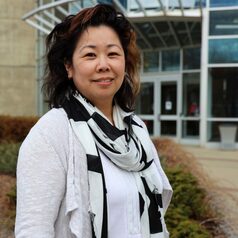
Sandy Jung
Professor, Department of Psychology, MacEwan University
Dr. Sandy Jung is a full professor in the Department of Psychology and is the Associate Dean, Research. She maintains an active research program in her Psychology Crime Lab (PCL@M) that focuses on the prevention of sexual assault, child sexual exploitation and intimate partner violence and is funded by both internal and major external grants. She has numerous peer-reviewed publications in the field of forensic psychology, often co-authored with her students and her collaborators in law enforcement, forensic mental health and other academic institutions in Canada, the U.S. and other parts of the world.
Dr. Jung has taught abnormal, forensic and clinical psychology and actively provides supervision of honours and advanced research students. She was a recipient of MacEwan’s Distinguished Teaching Award in 2017, Distinguished Research Award in 2018, and the Board of Governors Research Chair role from 2018 to 2020. She was also awarded CAFA’s Distinguished Academic Award in 2021.
Prior to her current academic position, Dr. Jung was a forensic psychologist at a forensic outpatient clinic in Edmonton. She serves on the editorial board for the journals, Sexual Abuse, Sexual Offending: Theory, Research, and Prevention and Canadian Psychology. She is an assistant adjunct professor in the Department of Psychiatry at the University of Alberta and is a registered forensic psychologist.
Less ![]()

Sandy Oliver
Professor of Public Policy, UCL
Sandy Oliver is Professor of Public Policy at University College London. For thirty-five years, her interests have focused on the interaction between people making decisions together in their professional and personal lives. Alongside this, she has been developing methods to collate knowledge from whole bodies of research – systematic reviews – not just single studies to inform those decisions. This work has combined the strengths of two social movements: evidence-informed everything and inclusive approaches to research and decision making. It has taken her on a journey spanning community activism, public sector outreach, socio-economic development, research methodology, indigenous knowledge, and blended ways of learning. Sandy consistently looks for the big picture, by synthesising knowledge from various academic traditions and from people who see issues from different perspectives.
Less ![]()
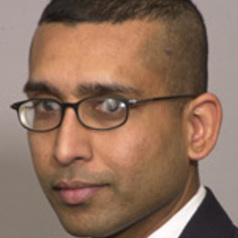
Sanjay Goel
Sanjay Goel is an Associate Professor in the Information Technology Management Department (School of Business) at the University at Albany, SUNY. He is also the Director of Research at the New York State Center for Information Forensics and Assurance at the University. Before joining the university, he worked at the General Electric Global Research Center. Dr. Goel received his Ph.D. in Mechanical Engineering in 1999 from Rensselaer Polytechnic Institute.
His current research interests include security & privacy that focus on information security along with privacy behavior; innovative education and pedagogy; and also security models i.e. biological models, risk models, and security policies. He also conducts research on forensics and cybercrime as well as on critical infrastructure, the first explores three fields: copyright and media piracy; botnets; and networks forensics. The second focuses on smart grid, including privacy in smart grid data analytics; impact of security and terrorism on financial markets; resilient transportation; and resilient service oriented architecture. Dr. Goel research interests also include hardware Trojans and secure chip design, and cyberwarfare.
He is invited to present seminars at several conferences in information security with topics including, wireless security, hacking, botnets, etc. and has several publications in leading conferences and journals. Dr. Goel teaches several classes including, Computer Networking & Security, Information Security Risk Analysis, Security Policies, Enterprise Application Development, Database Design and Java Language Programming.
Less ![]()
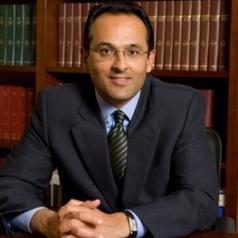
Sanjay Saint
Chief of Medicine, University of Michigan
Sanjay Saint, MD, MPH, is the George Dock Professor of Internal Medicine at the University of Michigan, the Director of the VA/University of Michigan Patient Safety Enhancement Program and the Chief of Medicine at the Ann Arbor VA Medical Center. His research focuses on preventing healthcare-associated infection, implementation science, and medical decision-making. He has authored over 275 peer-reviewed papers with nearly 100 appearing in the New England Journal of Medicine, JAMA, Lancet or the Annals of Internal Medicine. He is a Special Correspondent to the New England Journal of Medicine, an editorial board member of the Annals of Internal Medicine, and an elected member of the American Society for Clinical Investigation (ASCI). He received the Mark Wolcott Award for Clinical Excellence as the Department of Veterans Affairs National Physician of the Year. He is also the lead author of a book recently published by Oxford University Press entitled: “Preventing Hospital Infections: Real-World Problems, Realistic Solutions.”
He received his Medical Doctorate from UCLA, completed a medical residency and chief residency at the University of California at San Francisco (UCSF), and obtained a Masters in Public Health (as a Robert Wood Johnson Clinical Scholar) from the University of Washington in Seattle. He has been a visiting professor at over 60 universities and hospitals in the United States, Europe, and Japan, and has active research studies underway with investigators in Switzerland, Italy, Japan, Australia, and Thailand.
Less ![]()
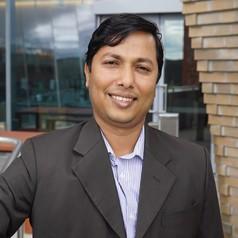
Sanjoy Paul
Associate Professor, UTS Business School, University of Technology Sydney
Dr Sanjoy Paul is an Associate Professor in the UTS Business School, University of Technology Sydney, who works on supply chain risk and resilience, and in particular, on recovery modelling using mathematical model and optimisation.
Sanjoy’s research interests include also sustainable supply chain management, supply chain resilience, supply chain pricing and traceability, applied operations research, modelling and simulation, and intelligent decision making.
His work has particular application to global supply chain interruptions, for example those experienced during pandemics, and he is now developing several supply chain recovery models that could be used by business during and after the COVID-19 pandemic. His latest research can be found in the following google scholar link.
https://scholar.google.com/citations?user=yD2kj5wAAAAJ&hl=en
Sanjoy has published more than 130 articles in top-tier journals and conferences including the European Journal of Operational Research, Transportation Research Part E: Logistics and Transportation Review, and the International Journal of Production Economics, among many others. He is also a guest editor, editorial board member, and active reviewer of many reputed journals. Sanjoy has been successful to secure external grants from the Department of Defence, Department of Industry, Science, Energy and Resources, and Department of Foreign Affairs and Trade and from other industry partners.
Sanjoy has received several awards in his career, including ASOR Rising Star Award, Excellence in Early Career Research Award from UTS Business School, the Stephen Fester prize for most outstanding thesis from UNSW, high impact publications awards for publishing articles in top-tier journals, and several university scholarships for outstanding results at undergraduate and postgraduate levels. Based on his citation records, he was included in the top 2% of scientists (based on the single year in 2020, 2021 and 2022) in author databases of standardized citation indicators.
Less ![]()
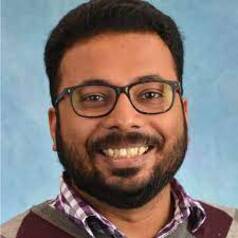
Sankaraleengam Alagapan
Research Scientist in Electrical and Computer Engineering, Georgia Institute of Technology
I am a Research Faculty member at Georgia Institute of Technology. I work in the Structured Information for Precision Neuroengineering Lab (SIPLab) within the School of Electrical and Computer Engineering. I work at the intersection of neurotechnology and psychiatry with the aim of developing brain stimulation therapies for psychiatric disorders.
I received my PhD in Biomedical Engineering from the University of Florida. Prior to joining Georgia Tech, I was a post-doctoral research associate at the University of North Carolina at Chapel Hill, working in the Carolina Center for Neurostimulation (spun off from Frohlich Lab). I enjoy photography, travel (to a certain extent) and (re)learning history.
Less ![]()

Sanna Malinen
Professor of Organisational Behaviour, University of Canterbury
Sanna Malinen is a Professor of Organisational Behaviour and works at University of Canterbury’s Business School. She draws from social and organisational psychological principles to support workplaces and communities where people can thrive. Some of her current research projects focus on workplace wellbeing, disaster management, and organisational resilience.
Less ![]()
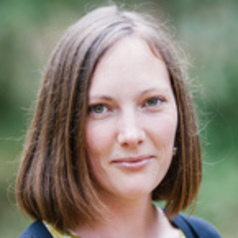
Sanne Weber
PhD Candidate, Centre for Trust, Peace and Social Relations, Coventry University
Sanne Weber is a PhD candidate and Research Assistant at the Centre for Trust, Peace and Social Relations (Coventry University). Her main research interest is transitional justice and gender.
She is particularly interested in analysing how conflict affects gender relations, whether and how transitional justice mechanisms are capable of addressing and transforming gendered and other structural inequalities, and how transitional justice mechanisms can better respond to the needs and demands of survivors of conflict. She is currently undertaking fieldwork in Colombia, analysing the gendered dynamics of Colombia’s land restitution and reparation process.
Previously, Sanne worked for over five years as a researcher, gender policy advisor and coordinator for human rights organisations in Guatemala on projects related to gender-sensitive transitional justice and the prevention of violence against women.
Sanne holds MAs in the Theory and Practice of Human Rights from the University of Essex and History of International Relations from Utrecht University.
Less ![]()
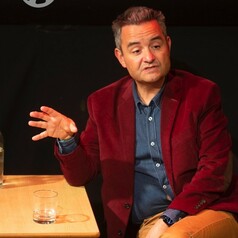
Santiago Fouz Hernández
Professor in the School of Modern Languages and Cultures, Durham University
Santiago Fouz Hernández is Professor of Iberian Studies and Film Studies at Durham University. His research explores issues of gender, the body, sexualities and national identities in contemporary Spanish cinema. He is the author of Cuerpos de cine (Bellaterra, 2013), co-author (with Alfredo Martínez-Expósito) of Live Flesh: The Male Body in Contemporary Spanish Cinema (I. B. Tauris, 2007) and editor of five books including Spanish Erotic Cinema (Edinburgh University Press, 2017) and Mysterious Skin. Male Bodies in Contemporary Cinema (I. B. Tauris, 2009).
Since 2015 he coordinates (with Betty Bigas) ‘The Bigas Luna Tribute’, a series of retrospectives, exhibitions and other events to help promote internationally the work of the late Spanish filmmaker. He also produces and co-presents the podcast 'El legado cinematográfico de Bigas Luna', title of the book he edited in 2020 for Tirant lo Blanch publishers. He is currently completing a monograph on filmmaker Bigas Luna for Manchester University Press.
Less ![]()
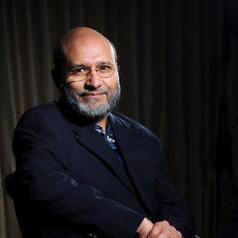
Santosh Mehrotra
Visiting Professor at the Centre for Development Studies, University of Bath
Santosh Mehrotra is Visiting Professor, Centre for Development Studies, University of Bath, UK and ex-Prof (Econ) and Chair of the Centre for Informal Sector and Labour, Jawaharlal Nehru University, New Delhi.
After an MA (Econ) from New School for Social Research, New York, and Phd (Econs), Cambridge University (1985), Santosh spent 15 years with the UN (1991-2006) in research positions, heading UNICEF’s global research programme on social/economic policy at the Innocenti Research Centre, Florence, and as chief economist of the global Human Development Report New York. He returned to India to head the Rural Development Division and Development Policy Division of Planning Commission (2006-09), and was lead author of several chapters of the 11th & 12th Five Year Plans of India, and the India Human Development Report.
He was also the Director General (2009-14) of the National Institute of Labour Economics Research, Planning Commission, in the rank of Secretary to the Government of India. He advises the current NITI, the Ministry of Labour, and the Ministry of Skill Development.
His writings have been translated into Hindi, Spanish, French, Russian, German and Portuguese.
Less ![]()
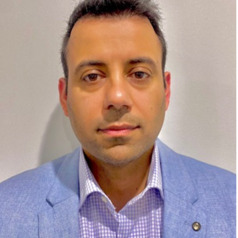
Sapha Shibeeb
Senior lecturer in Laboratory Medicine , RMIT University
I'm a senior lecturer in Laboratory Medicine at RMIT University. My main research interests are diabetes and cardiovascular diseases.
Less ![]()
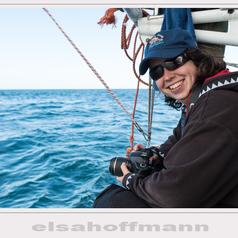
Sara Andreotti
Postdoctoral Researcher in management and conservation of white sharks, Stellenbosch University
Dr. Sara Andreotti is a marine biologist, working as a postdoctoral researcher at Stellenbosch University. Her research focuses mainly on white sharks, in the attempt to provide much needed information for the management and conservation of this vulnerable species.
In 2007, while completing her master's degree in marine biology at the University of Trieste (Italy), a lucky encounter with the world known conservationist Michael Rutzen (www.sharkdivingunlimited.com) initiated a collaboration and instrumental access to the field.
In 2009, in partnership with Michael Rutzen and the Branch Oceans and Coasts of the Department of Environmental Affairs of South Africa, she started collecting daily photographs of white sharks' dorsal fins to construct a database of the individual sharks in the area of Gansbaai. Subsequently, to combine a morphological and genetic approach for the identification of individual white sharks, Sara was enrolled at Stellenbosch University as a PhD student in 2011.
White sharks are listed for protection under the Convention on International Trade in Endangered Species (CITES) and the International Union for Conservation of Nature (IUCN, Category VU A1cd+2cd) and are recognised as particularly vulnerable to rapid stock declines. The lack of basic information is arguably the biggest obstacle to planning effective protection. Understanding the population dynamics can thus play a critical part in developing conservation strategies for these animals.
The PhD project also included a population genetic study of white sharks in South Africa to estimate the numbers of animals present in the coastline, point out the presence of different stocks and the level of genetic segregation between stocks. The PhD project, thanks to the sponsor of Michael Rutzen’ s Shark Diving Unlimited, was therefore extended from Gansbaai to the whole coastline and several voyages have been successfully completed by sailing around South Africa with a catamaran, equipped as a research vessel. For the PhD project, completed in March 2015, 426 white sharks could be successfully identified and catalogued from over 5,000 photographs, and more than 300 genetic samples have been collected.
Since March 2015 Sara has been enrolled as a postdoctoral researcher in the Department of Botany and Zoology, thanks to the Consolidoc bursary scheme, to complete the publications on the findings of the PhD project and expand the complex dynamics of South African white sharks.
Besides her own PhD project, Dr. Andreotti has been actively involved in the Sharksafe project: a novel and eco-friendly technology that aims to replace beach nets and baited drumlins to protect beach goers from large predatory sharks, without harming the marine life. As a member of the Sharksafe team she has been helping with field work and scientific publications.
Less ![]()

Sara Byala
Senior Lecturer in Critical Writing, University of Pennsylvania
Sara Byala is a senior lecturer in critical writing at the University of Pennsylvania and associate director of the Penn Global Documentary Institute (PGDI). South African born, Byala holds a PhD in history from Harvard University and a BA from Tufts University. Her research into the ways that capitalist systems intersect with social and cultural forces in Africa culminated in Bottled: How Coca-Cola Became African (Hurst, 2023). Based upon extensive archival research and fieldwork in Africa, Bottled suggests that the history and footprint of Coca-Cola in Africa is best understood as evidence of the company’s localness. Byala’s early work explored the import of colonial archives in post-apartheid South Africa through the biography of a cultural history museum and resulted in A Place that Matters Yet: John Gubbins’s MuseumAfrica in the Postcolonial World (University of Chicago Press, 2013). She is currently embarking on a new project relating to religion on the African continent. Byala teaches a wide range of courses about Africa, including ones on Coca-Cola, soccer, truth commissions, and cocoa. She also regularly teaches global seminars, which include travel to countries in Africa.
Less ![]()

Sara Drake
Reader in Law, Cardiff University
Expert in EU law specialising in the enforcement of EU law before national courts.
EU and UK air passenger rights
Less ![]()
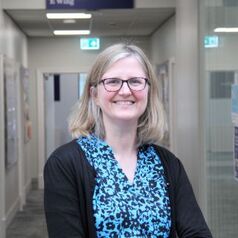
Sara Fovargue
Professor of Law, University of Sheffield
Sara is an expert on health care law and ethics, and family law. She has written on reproductive technologies, emerging biotechnologies (especially xenotransplantation), and matters relating to consent, capacity, risk and regulation, and conscientious objection. She is interested in the roles that hope and exploitation have in health care practice.
In terms of family law, her interests lie in issues relating to parenthood and parental responsibility, and other matters relating to children, including their ability to consent to medical treatment.
Sara is a co-investigator on a Wellcome funded project, Future of Human Reproduction, based at Lancaster University.
Less ![]()
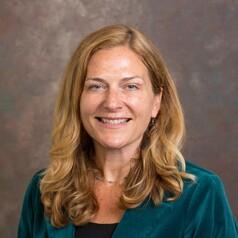
Sara Goldstein
Professor of Human Development, University of Delaware
Dr. Sara Goldstein is a professor in the Department of Human Development and Family Sciences at the University of Delaware, specializing in lifespan human development. She teaches courses related to lifespan development, child and adolescent development, and research methodology. Dr. Goldstein’s research takes a social justice informed approach to understand social and social-cognitive factors associated with youths’ psychological, behavioral, and social adjustment.
Most of Dr. Goldstein’s research has focused on the predictors and consequences of gendered aggression, bullying, and peer-based harassment. She also examines other aspects of adjustment including academic motivation and achievement, mental health, and problem behavior broadly defined. Dr. Goldstein is especially interested in the development of these constructs during periods of developmental transition such as early adolescence (as youth move from primary to secondary school), and emerging adulthood (as youth transition to independence from family of origin).
Because parents, peers, and schools play especially significant roles during these periods of youth transition, Dr. Goldstein’s program of research also explores the roles of these socialization agents in development. Recent projects focused on cyberbullying and sexual harassment during adolescence, and links with parental socialization and school experiences. Her current project explores how parenting during emerging adulthood (e.g, mindful parenting, parental psychological control) is linked with parent-youth relationship characteristics and with youth social and psychological adjustment.
Less ![]()
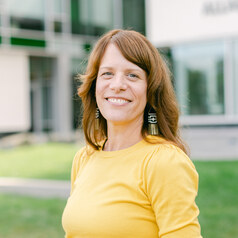
Sara Gordon
Associate Professor of Law, University of British Columbia
Sara Gordon is an Associate Professor at the Allard School of Law. Her current research focuses on the ways in which psychology and mental health intersect with the criminal justice system and the many barriers faced by people with mental illness involved in that system. At Allard, Professor Gordon teaches Criminal Law, Evidence Law, Mental Health Law, and a seminar in Law and Psychology.
Professor Gordon’s recent work examines drug and other specialty courts, which were originally intended to divert people with criminal charges out of the criminal justice system and allow them to instead receive treatment for an underlying mental illness or substance use disorder. Research in both the medical and psychological fields is rapidly evolving and, although it bears heavily on many aspects of the criminal justice system, including the treatment received by individuals in drug and other specialty courts, many lawyers, judges, and even legal scholars often exhibit a limited understanding of medical and psychological knowledge. Professor Gordon’s research helps to fill this gap through careful attention to the state of scientific and psychological literature and interdisciplinary collaborations.
Prior to joining the Allard School of Law, Professor Gordon was the William S. Boyd Professor of Law at the UNLV Boyd School of Law in Las Vegas, Nevada, where she also served as Associate Dean for Academic Affairs, and most recently, as Interim Dean of the law school.
Less ![]()

Sara Hagemann
Sara Hagemann is Assistant Professor at London School of Economics and Political Science, where she joined the European Institute in September 2009. In her work, Sara draws on a mix of academic and policy experience as she has held research and policy positions in Brussels, Copenhagen and London.
Sara has published extensively on European affairs, in particular on transparency and accountability in political systems, EU policy-making processes, EU treaty matters, the role of national parliaments, and the consequences of EU enlargements.
Sara is a frequent commentator on EU affairs in both international and national media. She is the Co-Founder and General Editor of the LSE’s popular European Politics blog EUROPP.
Before joining LSE, Sara worked as a Policy Analyst at the Brussels-based European Policy Centre (EPC), where she was responsible for its Political Europe programme. She has also held posts at the Centre for European Policy Studies (CEPS), and in the Danish Ministry of Foreign Affairs. Sara is the Co-Founder and former Managing Director of VoteWatch.eu (www.votewatch.eu) an online initiative that monitors EU decision-makers’ voting records. She is currently the Treasurer and Vice-Chair of the organisation.
Sara has been awarded an ESRC Impact Accelerator Grant through the LSE’s Institute of Public Affairs, due to commence in September 2016 until July 2018.
Less ![]()
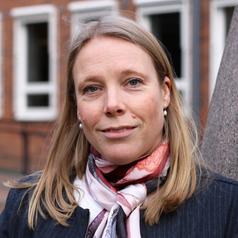
Sara Hägg
Associate Professor, Molecular Epidemiology, Karolinska Institutet
My main research interest is human biological aging; how to measure it in human cohorts, understanding causal pathways in aging and identify geroprotectors to repurpose for age-related diseases. Markers of human biological aging can be telomere length, epigenetic clocks, functional aging, frailty index, etc. I study such markers in longitudinal data from several twin studies of aging (SATSA, GENDER, HARMONY, OCTO-Twin, TwinGene) within the Swedish Twin Registry and also using UK biobank data. Methods that I use include longitudinal modelling, causal analyses using drug target Mendelian Randomization, and large-scale genome-wide approaches.
Less ![]()

Sara Harmouch
PhD Candidate, School of Public Affairs, American University
Sara Harmouch, a Lebanese national and doctoral candidate at American University’s School of Public Affairs, specializes in counterterrorism and violent extremism. She has firsthand experience with the impacts of terrorism and militancy through her upbringing and extensive fieldwork conducted across the Middle East and North Africa region. Harmouch consults for the U.S. government and the private sector and has recently briefed NATO on religious militant groups. Her research focuses on asymmetric warfare, militant groups, political violence, and threats to democracies. Her work has been featured in War on The Rocks, The Long War Journal, Lawfare, Voice of America, Orion Policy Institute, Irregular Warfare Initiative, Globe Post, and American Intelligence Journal, among others. Follow her on Twitter: @sara_harmouch
Less ![]()

Sara Harmouch
PhD Candidate, American University
Sara Harmouch, a Lebanese national and doctoral candidate at American University’s School of Public Affairs, specializes in counterterrorism and violent extremism. She has firsthand experience with the impacts of terrorism and militancy through her upbringing and extensive fieldwork conducted across the Middle East and North Africa region. Harmouch consults for the U.S. government and the private sector and has recently briefed NATO on religious militant groups. Her research focuses on asymmetric warfare, militant groups, political violence, and threats to democracies. Her work has been featured in War on The Rocks, The Long War Journal, Lawfare, Voice of America, Orion Policy Institute, Irregular Warfare Initiative, Globe Post, and American Intelligence Journal, among others. Follow her on Twitter: @sara_harmouch
Less ![]()
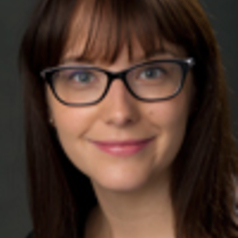
Sara James
Lecturer, Department of Social Inquiry, La Trobe University
Sara is a cultural sociologist. Her research interests include work, identity, disenchantment and authenticity. Her forthcoming book is about the significance of work in the lives of contemporary Australians, with a focus on vocation and the work ethic. Sara is co-convenor of the TASA Cultural Sociology Thematic Group. She also undertakes research in higher education pedagogy.
Less ![]()

Sara Jones1
Assistant Professor of Elementary Education—Literacy, Illinois State University
Dr. Sara Jones holds a PhD in Teaching, Learning and Diversity from Vanderbilt University, Peabody College, an MEd in Urban and Minority Education from the University of Maryland, and a BA in Elementary Education from Elon University. Grounded in her experiences teaching upper elementary and middle school English Language Arts in Washington, DC for nearly a decade, she is committed to literacy teaching and learning that is equitable, responsive, and rooted in social justice.
Less ![]()

Sara Jones2
Senior lecturer at Lactation and Infant Feeding Translational research centre, Swansea University
Senior lecturer in Public Health and researcher at LIFT (Lactation and Infant Feeding Translational research centre), Swansea University, UK.
Less ![]()

Sara Labrousse
Chercheuse en écologie polaire, Sorbonne Université
As a researcher in marine ecology at the Oceanography and Climate Laboratory (LOCEAN), I specialise in the study of Antarctic sea ice animals and the impact of global warming on their way of life.
Less ![]()

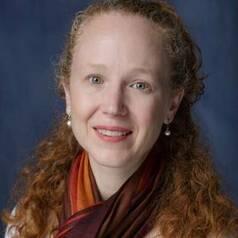
Sara N. Burke
Sara N. Burke is an Associate Professor of Neuroscience and Associate Director of the Cognitive Aging and Memory Center (CAM) at the University of Florida College of Medicine. She received her PhD in Neuroscience & Pharmacology in 2009 from the University of Arizona and went on to complete a Postdoctoral Fellowship (2009-2013) at her alma mater. The overarching goals of her NIH-funded research program are to 1) pinpoint alterations in how different brain regions communicate over the lifespan and how this contributes to loss of function in advanced age, and 2) to design therapeutic strategies for alleviating cognitive dysfunction in order to promote positive health outcomes in the elderly.
Less ![]()

Sara Nelson
Director of the NASA Iowa Space Grant Consortium, Iowa State University
Dr. Sara D. Nelson is the Director of the Iowa Space Grant Consortium (ISGC). The NASA-supported agency is part of Iowa State’s Department of Aerospace Engineering and works to improve and inspire Iowa’s involvement in Science, Technology, Engineering and Math (STEM) education.
Nelson has previously served as the ISGC as NASA Iowa EPSCoR interim director and assistant director for education and outreach. Nelson also holds a faculty position in Iowa State’s School of Education and conducts research in STEM education and uses her expertise to work alongside the Iowa 4-H Youth Development Program, developing STEM educational programs and STEM literacy outreach across the state of Iowa.
Sara received her Ph.D. in education and M.Ed. in science education from Iowa State University. She obtained a bachelor’s degree in elementary education from Luther College.
In addition to her work at Iowa State University, Nelson serves as co-chair for the Governor’s STEM Advisory Council, Diversity, Equity, and Inclusion Working Group. She also serves on the North Central STEM Advisory Board for the Governor’s STEM Advisory Council, the State Science Leadership Team, and the Science and Children Advisory Board of the National Science Teaching Association.
A part of NASA’s National Space Grant College and Fellowship Program since 1990, the ISGC supports aerospace research, education and outreach activities for all Iowans with NASA internships, fellowships, and scholarships, competitions for grants within higher education members (with NASA Mission Directorate alignment), as well as informal education grants with outreach affiliates.
Less ![]()
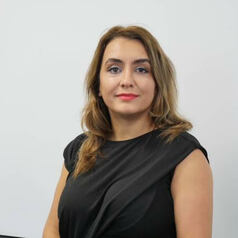
Sara Rye
Associate Professor, University of Bradford
Sara is an associate professor in University of Bradford recognised for her expertise in game-based learning. She has actively contributed to various research projects across Europe, the UK, and the Middle East. Sara's passion lies in implementing game-based learning methodologies within educational settings and extending their reach to diverse environments such as universities, rehabilitation facilities, and youth programs. She has successfully integrated game elements into the classroom, harnessing the power of gamification to enhance student engagement and learning outcomes. Sara's innovative approaches and effective strategies have garnered recognition, enabling her to disseminate her practices widely within UK, Europe and beyond. In addition to her academic pursuits, Sara has also provided consultancy services to numerous charities focused on youth development, young ex-offenders, and medical care professionals. Her expertise in designing game-based interventions has fostered skill-building, rehabilitation, and personal growth among these vulnerable populations. Sara's commitment to promoting inclusive education through game-based learning is evident in her collaborative efforts with various stakeholders and collaborators including educators, game designers, and policymakers to create inclusive and accessible learning environments. Her work aims to bridge the gap between traditional teaching methods and engaging, immersive learning experiences that resonate with today's students. She continues to push the boundaries of game-based learning, empowering educators and learners alike. Her contributions have not only advanced the field but also positively impacted the lives of individuals in diverse educational and rehabilitation contexts.
Less ![]()
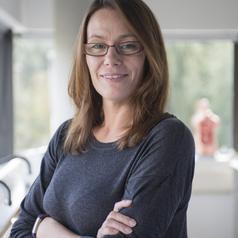
Sara Smith
Senior Midwifery Lecturer, Anglia Ruskin University
Having previously worked in administrative roles, I decided to train to become a midwife after the birth of y three children, having received such exceptional care from my community midwife.
I trained and worked local to my home and after working in all areas of the maternity service, was given the opportunity to work back at the university where I had trained in a skills tutor role. Following on from this, I completed my Masters studies and attained promotion to a senior lecturer post, where I continue to work today.
I have a keen interest in community midwifery (including antenatal education), but also high risk postnatal care.
Less ![]()
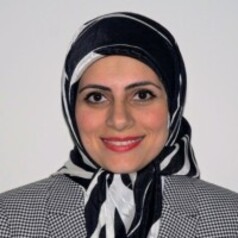
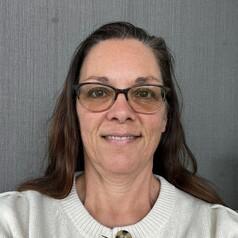
Sara Weis
Senior Scientist in Pathology, University of California, San Diego
My work is focused on using in vitro and in vivo models to study how blood vessels remodel during development, ischemia and cancer.
Less ![]()

Sara Benedi Lahuerta
Assistant Professor in Law, University College Dublin
Dr Sara Benedi Lahuerta is an Assistant Professor in Law at University College Dublin (UCD), Sutherland School of Law. Previously, she was a Lecturer in Employment Law at the University of Southampton Law School (UK) (2014-19) and the founding Director of the Stefan Cross Research Centre for Women, Equality and Law (2018-19).
Sara’s research focuses on discrimination and employment law (at EU and comparative levels). She is particularly interested in avenues to improve the effectiveness of equality law through a range of regulatory tools like collective enforcement, equality bodies, positive duties, ADR and collective bargaining. Her current research projects concern the analysis of pay transparency regulation to address the gender pay gap and EU policies to address hate speech. She is co-editing the book: "Bridging the Gender Pay Gap through Transparency? Comparative Approaches and Key Regulatory Conundrums" (with Prof. Laura Carlson and Ms Katharina Miller), forthcoming with Edward Elgar.
Her prior projects include: ‘Rethinking EU Equality Law’ (2016-18) and ‘The impact of Brexit on EU nationals’ vulnerability: the case of Polish nationals’ (2018-19). She also participated in the project: ‘Future Directions in EU Labour Law’ (2015-16), coordinated by Prof. Prassl (Universityof Oxford) and funded by the British Academy.
Her research has been funded, among others, by the ESRC (Impact Acceleration Account) and the Society of Legal Scholars, and has been published in leading journals, including the Common Market Law Review, the European Law Journal, the International Journal of Discrimination and the Law, and the European Labour Law Journal.
She is the Editor-In-Chief of the Berkeley Center on Comparative Equality & Anti-Discrimination Law E-Journal. She has also acted as an expert evaluator for the European Commission’s ‘Rights, Equality and Citizenship Programme’ and Marie Curie Individual Fellowships.
Less ![]()

Sara Bueno Fernández
Directora y Profesora Adjunta del Grado en Óptica y Optometría, Universidad CEU San Pablo
Directora del Grado en Óptica y Optometría USP CEU
Profesora Adjunta de la Facultad de Farmacia USP CEU
Profesora de Audiología en Instituto Superior de Enseñanza Profesional ISEP CEU
Doctora en Ciencias de la Visión.
Licenciada en Biología, Diplomada y Graduada en Óptica y Optometría.
Less ![]()
- Market Data





















